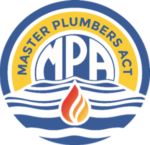New homes and renovations.
Building a new home or renovating can be a stressful and daunting process. The right advice upfront and good planning help the process run much smoother. It can also save you money and increase the value of your home.
7 top plumbing tips when planning a new home or renovation:
1. Wet wall sharing.
A wet wall is a wall that contains plumbing pipes such as water supply and sewer lines. When designing your home or renovation, having your ensuite and bathroom share a wet wall will save plumbing material and labour.
2. Water diversion.
Water conservation is essential nowadays. Incorporating a plumbing design that utilises greywater for garden and lawn irrigation helps the environment, saves you money on your water bill, and increases the value of your home. It is always cheaper and easier to incorporate a greywater system at the design stage rather than later. See our article on “Greywater Systems” for more information.
3. Energy and water conservation.
Don’t just replace that old electric hot water tank. Consider a solar, instant hot water gas or a high-efficiency electric heat pump when building or renovating. It will save you considerable money on your future energy bills. See our article on “Choosing a hot water system.” for more information.
Toilets used to use up to 20 litres per flush. Whilst dual-flush toilets are the norm nowadays for additional water conservation, you could consider a pressure-assisted toilet. A dual-flush (an Aussie invention) will use around 3 litres for half flush and 6 litres for a full flush. A pressure-assisted toilet uses about 4 litres for a full flush. These use air pressure to help push the waste down the toilet. Water in the tank compresses the air to assist in moving the stubborn waste without flushing more than once.
4. Pipe insulation.
Pipe insulation is critical if you live in an area subject to freezing temperatures. It could save you thousands of dollars in repairs due to pipe ruptures.
5. Water shut off placement.
When building a new home or renovating, make sure your plumber locates your water shut off valve in an easy to reach location. They often end up in obscure hard to reach places. It is critical to turn off the water supply quickly in the event of a pipe bursting. This will minimise damage and may save thousands in repairs.
6. Get your pipes checked.
If renovating, get a plumber to inspect the existing pipes, particularly the sewer and stormwater. It’s much easier to repair or replace old pipes whilst under construction.
7. Buy the best fixtures you can afford.
Most projects run over budget, and the quickest and easiest way to reduce costs is to go for the cheapest plumbing fixtures. Typically this works out to be a false economy as a good quality kitchen mixer tap will last two to three times longer than a cheap one. Talk to your plumber; they are replacing fixtures day in and day out. They know which are the best brands and products to suit your budget. The good quality ones are not necessarily the most expensive.

